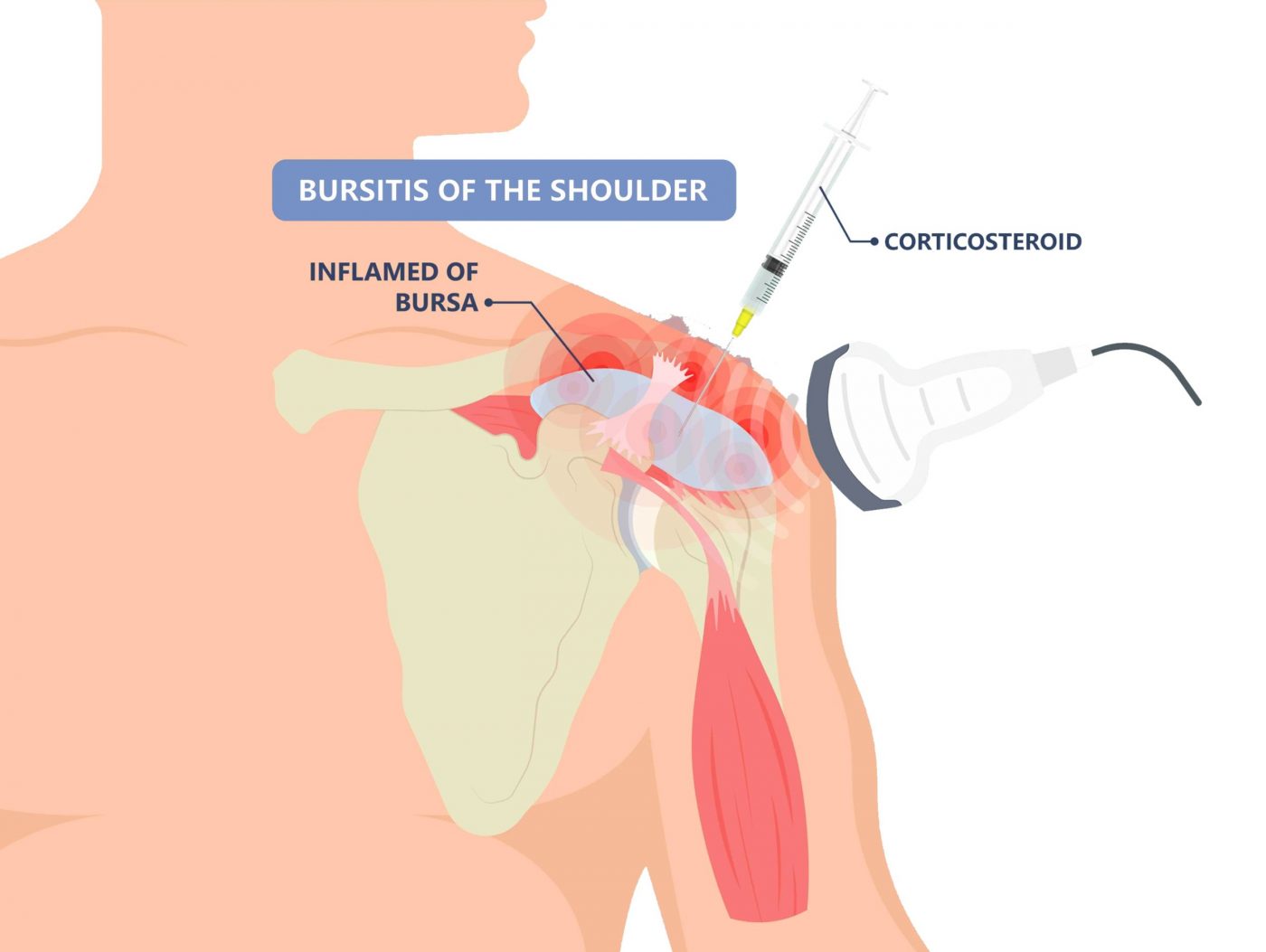Cortisone is a powerful anti-inflammatory medication that can be injected directly into the affected area to reduce inflammation, relieve pain, and promote healing. These injections are commonly used to treat various musculoskeletal conditions, including those affecting the shoulder.
Cortisone injections can provide relief for a wide range of shoulder conditions, including:
- Rotator Cuff Tendonitis: Inflammation of the rotator cuff tendons.
- Bursitis: Inflammation of the bursa sac, which cushions the shoulder joint.
- Frozen Shoulder (Adhesive Capsulitis): A condition characterized by stiffness and pain in the shoulder joint.
- Arthritis: Inflammatory joint conditions that can affect the shoulder.
Benefits of Cortisone Injections
- Quick Pain Relief: Cortisone injections can provide rapid pain relief, allowing patients to resume their daily activities with less discomfort.
- Non-Invasive: They are a minimally invasive treatment option, which means no surgical intervention is required.
- Customized Treatment: The injections can be tailored to the patient’s specific condition, providing targeted relief.
- Improved Functionality: By reducing inflammation, cortisone injections can enhance shoulder mobility and function.
The Procedure
- Consultation: A thorough evaluation by a doctor is necessary determine the need for a cortisone injection.
- Preparation: The shoulder area is cleaned, and a local anesthetic may be applied to numb the area.
- Injection: The cortisone medication is injected into the affected area using a thin needle.
- Recovery: Patients are monitored briefly after the injection and can usually resume their daily activities shortly afterward.

Risks and Side Effects
While cortisone injections are generally safe and well-tolerated, there are some potential risks and side effects, including:
- Temporary pain or discomfort at the injection site.
- Skin discoloration or thinning.
- Infection (rare).
- Changes in blood sugar levels (for individuals with diabetes).
We can discuss these risks with you during your consultation and provide guidance on how to minimize them.
Frequently Asked Questions
- Q1: How long does it take for cortisone injections to work?
- A1: Most patients experience relief within a few days to a week after the injection.
- Q2: How many injections will I need?
- A2: The number of injections required varies depending on your condition. Some patients find relief with just one injection, while others may require multiple treatments.
- Q3: Are cortisone injections a long-term solution?
- A3: While cortisone injections can provide significant relief, they are not a permanent solution. They can be used to manage symptoms while addressing the underlying cause of the shoulder condition.
[widgetkit id=”47″]
